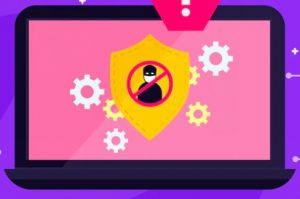The Importance of Social Media Hygiene and Prevention
Introduction
In the modern world, social media has become an integral part of our daily lives. It's a space where we connect with friends, share experiences, stay informed, and even network professionally. However, just like any tool, social media can become a double-edged sword. While it offers many opportunities, it can also expose us to risks such as online harassment, identity theft, and reputation damage. This is where social media hygiene comes into play — the practice of maintaining a clean and safe online presence to prevent these negative consequences.
What is Social Media Hygiene?
Think of social media hygiene like dental hygiene. Just as brushing your teeth regularly prevents cavities and ensures overall oral health, maintaining your social media presence is vital for protecting your digital identity, mental well-being, and reputation. Social media hygiene involves being conscious about what you post, who you interact with, and how you protect your personal information. It’s about creating boundaries, staying informed, and taking steps to minimize risks.
Why is Social Media Hygiene Important?
1. Preventing Online Harassment
Online harassment is a growing issue on social media platforms. It can take various forms, from trolling and cyberbullying to more severe cases like doxxing or revenge porn. The consequences can be deeply distressing, leading to anxiety, depression, and even a loss of self-esteem. By practicing social media hygiene, you reduce the chances of exposing yourself to harmful individuals and negative experiences. You can protect your mental health by being cautious about the content you share and who has access to it.
2. Avoiding Identity Theft
In the digital age, your social media profiles are part of your identity. Unfortunately, cybercriminals can exploit personal information from social media to engage in identity theft. By oversharing details like your address, phone number, or other sensitive information, you may inadvertently give thieves access to your private life. Social media hygiene includes keeping personal information to a minimum, setting privacy settings, and using strong passwords and two-factor authentication.
3. Maintaining a Professional Reputation
In today’s world, employers often check social media profiles before hiring candidates. An inappropriate post, an offensive comment, or even an embarrassing photo could cost you a potential job or professional opportunity. By practicing social media hygiene, you ensure that your online presence reflects your values, professionalism, and judgment. Keeping a polished profile is important for both personal branding and career growth.
4. Fighting Misinformation
In the age of “fake news,” it’s easy to fall victim to false or misleading information. Whether it’s a sensationalized article, a rumor, or a conspiracy theory, spreading misinformation can damage your credibility and even harm others. Social media hygiene involves verifying the information before sharing it, fact-checking sources, and being aware of the content you engage with.
Tips for Practicing Social Media Hygiene
1. Be Mindful of What You Post
The key to good social media hygiene starts with the content you share. Always think twice before posting anything, especially content that could be considered controversial, offensive, or revealing. You may feel comfortable posting in the moment, but think about how it might be perceived by a broader audience or in the future. A harmless party picture today could be a red flag to a future employer.
2. Clean Up Your Friends/Followers List
The digital world is vast, and it’s easy to accumulate a long list of friends or followers. However, not everyone on your social media is a friend. Periodically review your connections and remove people who don’t add value or who might pose a threat to your privacy. Be especially cautious about accepting friend requests from strangers.
3. Limit Public Information Sharing
Certain details of your life should remain private. Sharing personal information like your phone number, address, or even vacation plans can make you vulnerable to identity theft, scams, or physical harm. Use privacy settings to restrict who can see sensitive information, and always double-check what’s visible to the public.
4. Secure Your Accounts
A key aspect of social media hygiene is protecting your accounts. Use strong, unique passwords for each social media platform, and enable two-factor authentication for added security. This reduces the likelihood of someone hacking into your account and misusing your personal information.
5. Don’t Engage with Trolls
There will always be people online who seek to provoke or harass others. It's important to avoid engaging with these individuals. Responding in anger or defensiveness often escalates the situation. Instead, block or report problematic users, and take the conversation offline if necessary. Remember, you control your online space.
6. Be Cautious of What You Believe and Share
Misinformation spreads quickly on social media. Before sharing a news article or post, take the time to verify the authenticity of the information. Is it from a credible source? Does it provide evidence or citations? Being a responsible digital citizen means not amplifying rumors or falsehoods.
The Human Side of Social Media Hygiene
We often forget that behind every social media account, there’s a real person with real emotions. The responsibility to protect our online presence is not just about protecting ourselves, but also being considerate of others. Practicing good social media hygiene helps foster a more respectful, positive, and healthy online environment.
In the end, social media hygiene isn't about restricting yourself from having fun or sharing your opinions — it’s about being aware of the potential consequences of your actions in the digital space. The goal is to enjoy the benefits of social media without sacrificing your privacy, safety, or well-being.
Conclusion: Prevention is Better than Cure
As with any form of hygiene, prevention is always better than dealing with the aftermath. By adopting healthy social media practices today, you can avoid the risks and challenges that may arise in the future. Protect your digital life, maintain a positive image, and stay aware of the ever-changing landscape of social media.
Social media hygiene is not just a trend; it's a necessary practice in our digital world. Stay safe, stay mindful, and keep your online presence as clean and secure as possible. In doing so, you will be able to navigate the social media space confidently, protect your personal and professional reputation, and enjoy all the benefits it has to offer.



